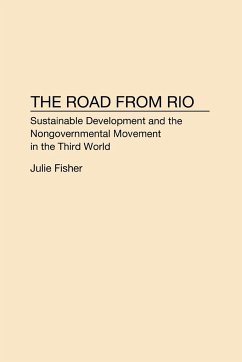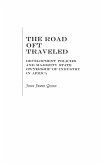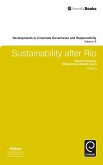Fisher expertly describes and analyzes the growing non-governmental movement throughout the Third World in relation to the global issue of sustainable development, highlighted by the recent Rio Conference. An estimated 200,000 or more indigenous NGOs (non-governmental organizations) at both the grassroots and intermediary levels help fill the void created by the failure of governments to adequately address the escalating, intertwined crises of poverty, environmental degradation, and population. NGOs, a number of which Fisher examines in detail, address the myriad problems associated with dire poverty, environmental destruction, pervasive unemployment, and the grinding exploitation of women. The stimulus to action and group effort is typically the basic need for life's fundamentals--food, shelter, and safety. Fisher points out, however, that NGOs focusing on population have grown less rapidly than those concentrating on enterprise development and/or environmental degradation. Fisher identifies the core abilities within and among NGOs that help them develop effective short-term strategies and also enhance their institutional sustainability in the long run. She demonstrates that this grassroots movement is a vital, growing force in the vast majority of Third World countries, with the potential to undermine the politics of repression and inequality. The international importance of NGOs is increasingly evident, given their ability to network and support one another. Fisher offers a comprehensive, insightful, and substantive assessment of what may be the most hopeful institutional resource available for the sustainable development of the Third World and, therefore, our ultimate survival as a species.
Hinweis: Dieser Artikel kann nur an eine deutsche Lieferadresse ausgeliefert werden.
Hinweis: Dieser Artikel kann nur an eine deutsche Lieferadresse ausgeliefert werden.








